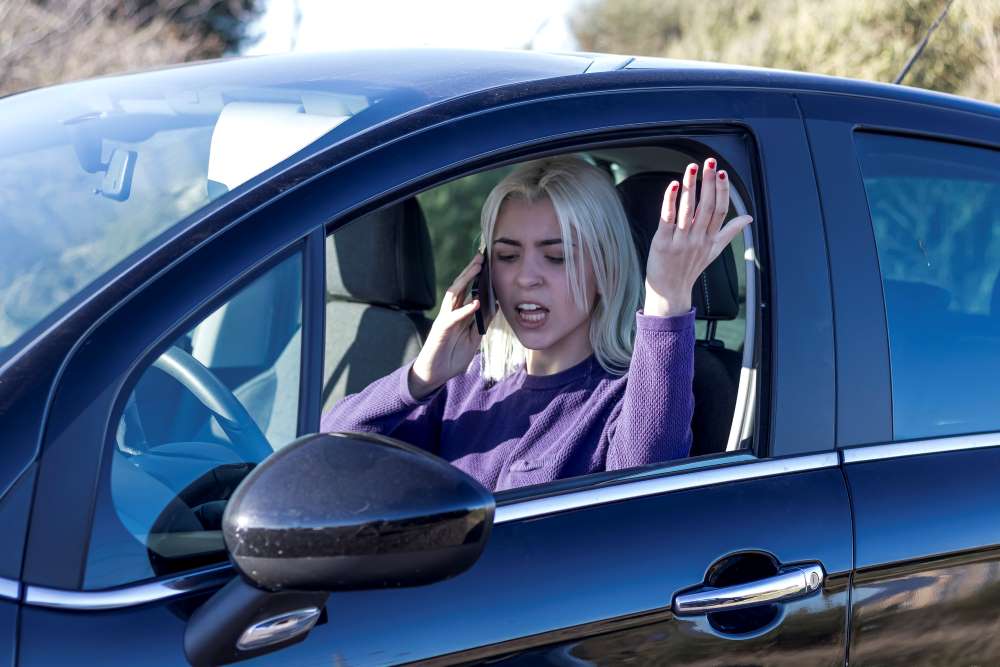
Discipline has always been a difficult subject to navigate for parents. As children get older, they start to make decisions that severely impact themselves and the people around them.
Toddlers steal a cookie from their siblings; teenagers may drink and get behind the wheel of a car. The punishment for the latter is going to require heavier-handed consequences than taking pastries.
We’ll talk about some of the best tips for figuring out how to discipline your teen after they have gotten a ticket for a traffic violation. The consequences need to reinforce the idea driving is a serious matter that is not to be taken lightly. We’ll answer some questions about how teens will be affected by bad decisions on the road and how they can overcome them.
Can you register a car with a suspended license? Can kids under 18 go to jail for something that they do on the road? And will discipline from parents make matters better or worse under these circumstances?
Is it their first traffic violation?
Everyone deserves a second chance in life. Some mistakes require more rehabilitation than others. If a teenager has proven throughout their life they make responsible choices and always try their best to be a mature individual, there is no reason to go laying down the hammer on their first traffic violation.
Some teen drivers are going to be overwhelmed with the number of rules and regulations they have to keep track of when they first get their license. Others are going to make some decisions they will regret in the heat of the moment, and they still deserve sympathy and understanding.
Teen decision-making can be shaky. The best course of action after a teenager runs a red light or parks illegally is to talk about what the correct decision would have been so they can correct their behavior in the future. Discipline is a process, not a blunt one-off measure of power. Far too often parents want to exhibit their authority with punitive actions.
Take a more learning-focused approach to the problem. If a teenager sees parents are willing to forgive, they will be more likely to make great decisions down the line. There should be a happy medium to this method, though. Allowing too much of a leash on poor behavior behind the wheel might instill bad habits that will turn into worse scenarios.
You need to teach your kids about what the legal system will do to them if they continue to make more mistakes after the first violation. Discipline from the courts is going to be much more difficult to navigate than being grounded and disallowed from going to a party with friends.
Legal and Domestic Consequences of Traffic Violations
The consequences of drunk driving and the aftermath of texting while driving are perhaps the two most common discussions most parents have to talk to their teen drivers about. Teens want to have fun. They have a lot of friends, and the things they choose to do with those people can be both dangerous and unforgiving.
One bad decision can end the life of a teen driver or put them behind bars for the foreseeable future. Juvenile detention centers and permanent stains on a young person’s criminal record are avoidable consequences nobody has to endure if they just make smart choices.
Being proactive with your parenting is the best way to let your kids know about these pitfalls before they come to fruition. Talk about how to best avoid getting behind the wheel when you have just drunk too much or gotten high on recreational drugs like marijuana. It is obviously illegal for teenagers to be consuming these products, but let’s not kid ourselves.
Teenagers have been getting these substances for years, and it isn’t going to change with the ensuing generations. The important thing to do is talk to your child about the trust you are placing in them. Let them know that the responsibility of getting older comes with important, life-altering decisions.
Being Proactive With Your Teenager
The same argument can be made for talking to kids about protection instead of abstinence in sexual education. Young people don’t want to be told they can’t have sex. Assume they are going to, and then provide the consequences of doing so, like unwanted pregnancy and STDs.
In this analogy, it’s easy to see the same methods working for driving. Opt for freedom of choice. As a parent, be aware your kids might go to a party and become intoxicated or high.
Then talk about the methods for getting home that don’t involve getting into the driver’s seat. Never accuse your child of something beforehand, though. This will break the trust between you.
Calling an Uber, asking a designated driver, or calling another trusted adult to get you home are all good options. If kids decide to ignore these, and they come home drunk without the police pulling them over, action should be taken. Taking away their car or their license is something the authorities would have done, so you should do it too.
Suspended Licenses
No young person wants to get their license suspended right after they get granted one. Having a revoked license makes many other things in life worse and harder to accomplish. Say your teen wants to get a new car for themselves after they earned a nice haul at their job.
Having a suspended license will make it so they can’t even drive their new ride until they have been given their driving privileges again by the state. They may be forced to get non-owner SR-22 insurance — that is, an SR-22 certificate signaling that they have the state’s minimum required amount of insurance.
After the license has been returned, parents should force their kids to prove good behavior behind the wheel with an adult before they can return to independent driving.
Basic Strategies For Taking Disciplinary Action
The best disciplines are the ones that will teach a lesson to teenagers so they will not repeat the same mistakes. Do something that will make them see the error of their ways. If they hurt someone by running a red light, simply forcing them to apologize to the person they hit might be good enough.
If they aren’t emotionally mature enough to feel guilt after that, taking away their driving privileges is the only thing that can be done to improve their decision-making. They will either feel bitterness or react accordingly and get better. Either way, they won’t be able to hurt anybody when driving for the time they are disallowed to drive.



























